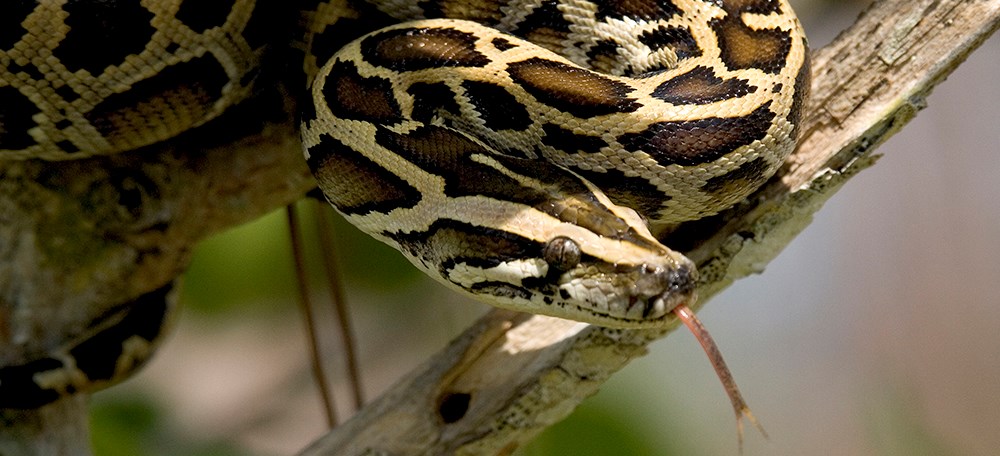Back in the 1980s, a small number of pet Burmese pythons were released into the Florida wilderness. They have since proliferated throughout the southern part of the state, and are eating their way through populations of birds and mammals, including ones that are endangered. But recently, a team of researchers discovered an additional threat to Florida’s wildlife: A number of Burmese pythons running loose in the state are hybrid species, which could make them even more resilient than their nonhybrid cousins.
Burmese pythons are native to Southeast Asia and can grow up to 23 feet long and weigh 200 pounds. They are reportedly distributed across more than a 1,000-square-miles of south Florida, including the entire Everglades National Park.
Scientists from the United States Geological Survey and the Everglades National Park analyzed tissue from the tails of about 400 Burmese pythons, reports Smithsonian Magazine. They discovered that some animals assumed to be Burmese pythons were also carrying DNA from another type of snake. Thirteen of the 400-odd snakes had genetic signatures of the Indian rock python in their mitochondrial DNA.
“You bring these different traits together and sometimes the best of those traits will be selected in the offspring,” said Margaret Hunter, lead author of the new report, to The Guardian. “That allows for the best of both worlds in the Everglades, it helps them to adapt to this new ecosystem potentially more rapidly.”
Thanks for reading InsideHook. Sign up for our daily newsletter and be in the know.


















